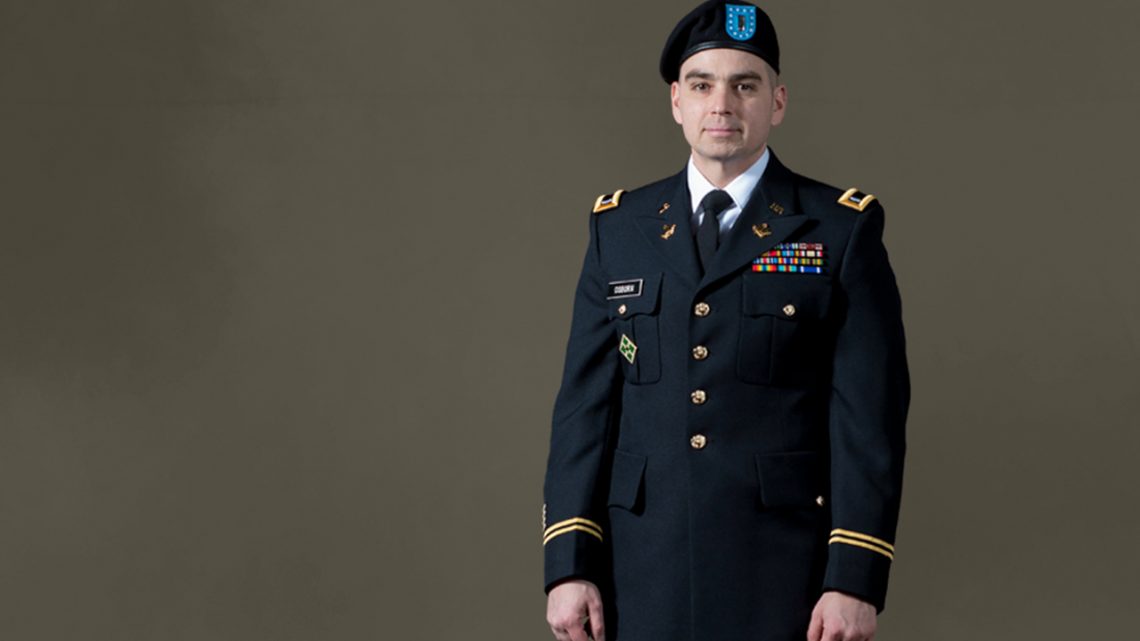Chaplaincy has a long history. One could even say that when the Israelites went into battle, priests went with them as chaplains.
Chaplains are clerics, official members of the clergy. We often think of them serving in hospitals, police and fire departments, religious universities and the military. However, they can also be found serving in hospices, veterinary clinics, schools, prisons, airports, cruise ships and other businesses. There is even a chaplain appointed to the Senate and another for the House of Representatives. Barry C. Black is currently serving as the first African American and the first Seventh-day Adventist chaplain for the United States Senate and their family members.
It was General George Washington who popularized the role of chaplains in society by insisting they be appointed and paid to serve the soldiers. Even though Washington faced shortages of supplies and funds, he consistently advocated for chaplains because he could see their value to the unit.1
Since that time members of many faith groups have joined the ranks of military chaplains in order to provide religious support and to “advise and assist commanders in the discharge of their responsibilities to provide for the free exercise of religion in the context of military service as guaranteed by the Constitution.”2
A series of choices
According to Nicholas Osborn, a pastor in the Dakota Conference and chaplain candidate for the United States Army, “Chaplaincy is one of the greatest venues for sharing the gospel. It encapsulates what pastor’s work so hard to do. You go into the environment where the soldiers are, build rapport with them, spend time with them and provide for their needs.”
Osborn, originally from Colorado, grew up with a deep interest in spiritual things. “I started going to a Baptist church with one of my friends when I was a kid,” he says. “I asked a lot of questions, and eventually I asked the wrong questions. They were not too happy with me so I started going to the Adventist church.”
Just before the summer between his junior and senior years of high school, an Army recruiter contacted Osborn, who had just returned from College Days at Union College. This was good timing for the recruiter. Osborn liked what he saw at Union, but his family was poor, so Osborn saw the Army as an excellent answer to prayer in order to pay for college. “They had me locked in to join the Army when I graduated high school. After that I went off to Basic Training and then to my first duty station in Texas. But while there, I slipped away from the church.”
With deep emotion Osborn related how a soldier was killed in the same post where he had been for the previous two weeks. After this traumatic event, Sergeant Osborn began to reevaluate his spiritual health and study the Bible. It was either that or go further down a dark path. Osborn recalled, “I knew more about the Bible than all my peers. I even knew Greek better than the chaplains, yet I didn’t have a healthy relationship with my Lord. I realized I needed to dedicate my life and work to my Lord.”
Blessed to serve soldiers
About a year later, when Osborn was honorably discharged, he applied to many universities. “Southwestern Adventist University was the first to get back to me and they even offered a free class during the summer semester, so I had to see if it was the right university for me,” Osborn recalled. He started taking theology classes because he wanted to know God better.
At the time there were so many theology students studying to become pastors he considered the need for the Adventist message to go to soldiers too. “I got pretty good at Army stuff. I wondered if God opened the door for me to come to SWAU so I could serve him as a chaplain.” Osborn prayed, and talked to some of his peers and teachers about that possibility. He quickly realized this was God’s calling for him.
Early in his studies at the university, he met and married Christina. At first, she was not interested in becoming a pastor’s wife, but after some research she was totally on board with being the wife of an Army chaplain.
After graduation, he had difficulty finding a conference willing to hire someone planning to become a chaplain. Yet he decided to be open and upfront about his goals. The Dakota Conference appreciated his honesty and hired him in January 2012. He worked for several years as a pastor in the Dakotas before going to the seminary.
Osborn contacted the chaplain recruiters while in the seminary and became a candidate. “I went to Chaplain Basic Officer Leaders Course and began monthly drills while at the seminary. I feel so blessed that I can pastor and serve soldiers now,” said Osborn. “I enjoy ministering to soldiers because I can relate to them. I have been in their boots. I know many of their challenges. I know about Sabbath issues that come up for Adventist soldiers and can help resolve most of them.”
Osborn has two more years as a chaplain candidate. After he is ordained he can accession as a full time chaplain in the Army, as a Reservist or in the National Guard. Osborn concluded, “The chaplaincy is a wonderful ministry; God needs Seventh-day Adventists in all capacities.”
- “George Washington on Chaplain’s Importance Thereof.” www.ministers-best-friend.com/George-Washington-on-CHAPLAINS-IMPORTANCE-Thereof.html
- Religious Support Field Manual for the United States Army, 1-05, Chapter 1, Religious Support for the Army, par. 3, 4; Oct. 2012.









